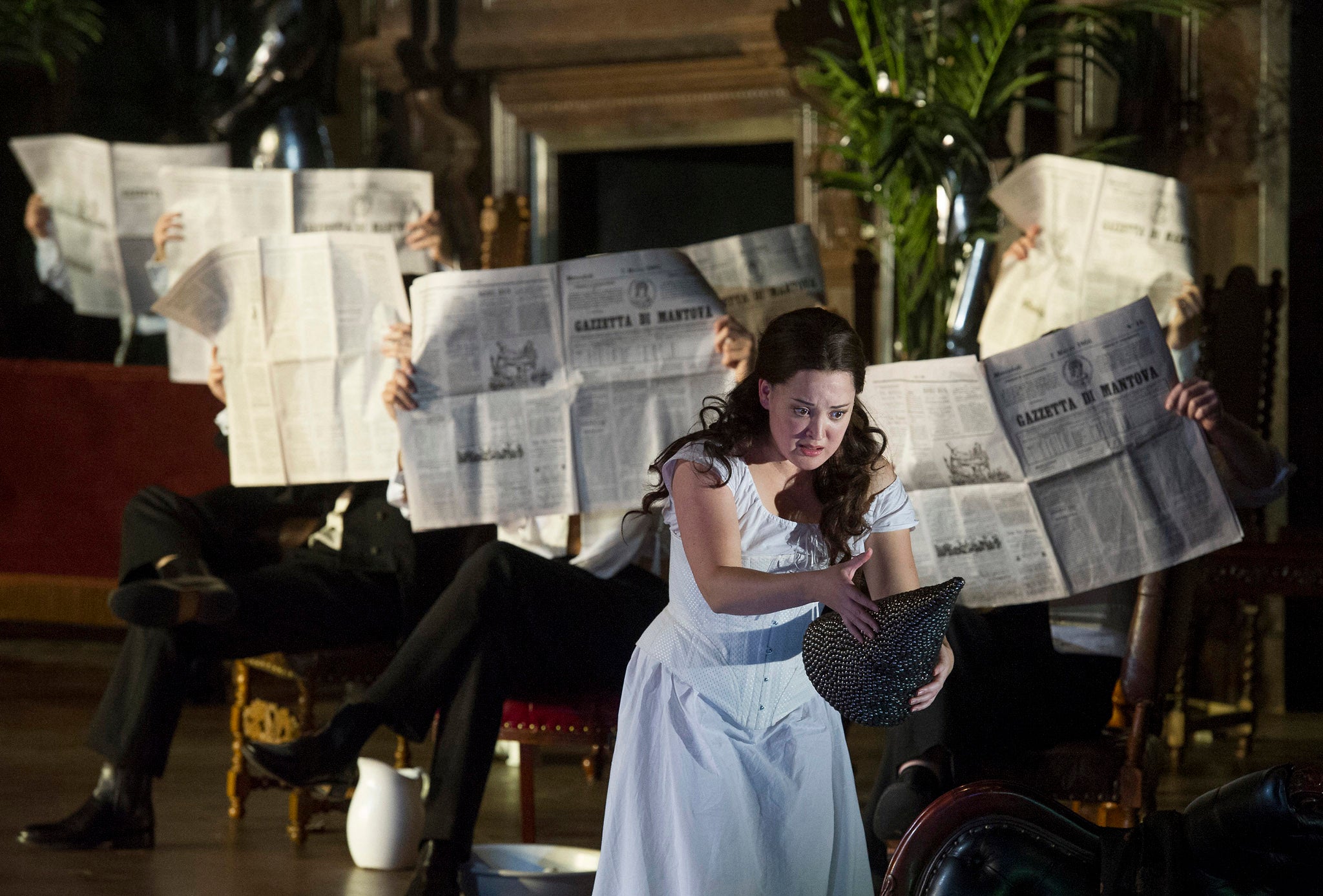Verdi's Rigoletto, opera review: ENO's itch for newness may come at a price
English National Opera - Coliseum,London

Your support helps us to tell the story
From reproductive rights to climate change to Big Tech, The Independent is on the ground when the story is developing. Whether it's investigating the financials of Elon Musk's pro-Trump PAC or producing our latest documentary, 'The A Word', which shines a light on the American women fighting for reproductive rights, we know how important it is to parse out the facts from the messaging.
At such a critical moment in US history, we need reporters on the ground. Your donation allows us to keep sending journalists to speak to both sides of the story.
The Independent is trusted by Americans across the entire political spectrum. And unlike many other quality news outlets, we choose not to lock Americans out of our reporting and analysis with paywalls. We believe quality journalism should be available to everyone, paid for by those who can afford it.
Your support makes all the difference.What is Rigoletto about? For Victor Hugo, who wrote the play on which Verdi based his opera, the real subject of the drama was the curse placed upon the hunchbacked jester by the father whose sexual humiliation he had publicly mocked. Verdi’s opera has Shakespearean grandeur, and echoes of Lear and Cordelia resonate throughout.
For Christopher Alden, whose take on Rigoletto has now reached the Coliseum after mixed reviews in Chicago and Toronto, it’s about social inequality and the subjugation of women. He sees the jester as ‘a genius of denial’ who thinks he can keep his private life pure from the corruption of his public activities: hardly an original insight.
But his staging is original. Wanting to avoid the ‘cosiness’ of naturalism, he and designer Michael Levine have placed the entire drama in an opulent Second Empire gentlemen’s club, with chorus and principals remaining onstage throughout.
Alden believed this would allow the power-struggles to come clearer, but the net effect is to muddy the story - a problem compounded by the fact that the action flips constantly between realism and symbolic meta-reality.
There are some impressive coups de theatre – as when the Duke’s gang invade Rigoletto’s house like a black-clad Neapolitan funeral cortege – but also some tiresome ones, as when the defiant Monterrone is hanged from the club’s ornate ceiling, and when the entire cast erupts in a sex orgy as Gilda is murdered.
Moreover, the psychological truth of the drama is repeatedly undermined by the direction. When the Duke sings of his devotion to Gilda, the music absolutely demands that we believe he is sincere – yet Alden has just shown him seducing Gilda’s confidante Giovanna; this negates the music’s message, and unhelpfully reduces Giovanna to just one more piece of corruption.
Much of the movement-direction doesn’t ring true. Most seriously, Alden’s aversion to cosy old naturalism fatally spikes what should be the story’s most heart-rending moments – Rigoletto’s realization that he has been duped into assisting his daughter’s kidnap; his and Gilda’s agonised eavesdropping on the Duke’s seduction of Maddalena; and the final bloody revelation (here, Gilda’s immaculate ghost walks serenely away into the distance).
What saves the evening is exceptionally fine singing from Barry Banks as the Duke, Peter Rose as Sparafucile, and Justina Gringyte as Maddalena. If Anna Christy’s sound as Gilda is short on beauty, Quinn Kelsey’s performance in the title role is both superbly sung and poignant beyond words: that alone, plus Graeme Jenkins’ coruscating direction in the pit, would justify a ticket.
However, behind this show lurks the indelible memory of the Jonathan Miller production which it has supplanted. Miller updated the story to New York’s Little Italy in the 1950s with such success that his production, revived for thirty years, became one of ENO’s bankers (Miller’s Mikado being the other). And given the cost of new productions, revivability is now a big issue.
Alden’s Rigoletto may be technically easy to revive, but it’s hard to imagine audiences clamouring for its return. ENO’s itch for newness may come at a price.
Join our commenting forum
Join thought-provoking conversations, follow other Independent readers and see their replies
Comments